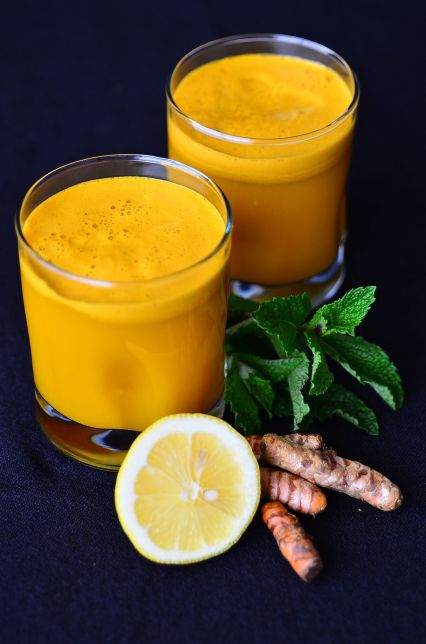LANGUAGES

LANGUAGES

Curcuma, more commonly known as turmeric, may help treat a variety of different ailments. Healers have used the herb for medicinal purposes for more than 4,000 years.
Curcumin stimulates bile production in the gallbladder, which may help improve digestion. The German Commission E, the body of experts who determine which herbs to safely prescribe in the country, endorses turmeric for treating a variety of digestive problems including indigestion, bloating, gas and dyspepsia. The herb may also benefit sufferers of inflammatory conditions such as ulcerative colitis. Turmeric may provide some benefit to sufferers of osteoarthritis because of its ability to reduce inflammation. In India, healers have used the herb for thousands of years to treat and prevent inflammatory conditions such as arthritis.
Although research is still preliminary, turmeric may help prevent, control or even kill several types of cancer including breast, colon and prostate. A study published in 2001 in the scientific journal "The Prostate," found that curcumin significantly inhibits prostate cancer growth and limit it's spread. Although further human trials are required before doctors can recommend curcuma, the substance appears to have a strong potential for fighting many different cancers. The University of Maryland Medical Center explains that the herb may work by stopping the growth of the blood vessels that supply cancerous growths, and its preventative effects may derive from its antioxidant activity, which protects cells from damage.

PHOTO: WHOLEFOODSEXPLORER.COM
Herbalists and doctors use the curcuma to treat stomach ulcers, diabetes, bacterial and viral infections, uveitis and atherosclerosis, although scientific research has only just begun to examine the herb's efficacy for treating these ailments. Some of turmeric's traditional, though clinically unproven, uses include treating eczema, endometriosis, tendinitis, bursitis, carpal tunnel syndrome, cataracts, cirrhosis of the liver, gallstones, halitosis, periodontal disease, heart disease and AIDS.
The permissible dosages of various forms of turmeric (for adults): cut root: 1.5 – 3 g per day, dried, powdered root: 1 – 3 g per day, standardized powder (curcumin): 400 – 600 mg, 3 times per day, fluid extract (1:1) 30 – 90 drops a day and tincture (1:2): 15 – 30 drops, 4 times per day.
RELATED ARTICLES
OTHER ARTICLES

FITNESS
Exercise for a healthy heartYour heart is a muscle, and it gets stronger and healthier if you lead an active life. It's never too late to start exercising, and you don't have to be an athlete. Even taking a brisk walk for 30 minutes a day can make a big difference.

HEALTH & HEALING
Fall skin care tipsAs the days grow shorter, the temperatures drop, and the air becomes drier, your skin may lose precious moisture. Autumn is a time of transition, and the best autumn skin care routines will correct any summer damage that has occurred and prepare your skin for winter.

HEALTHY LIVING
How to release your emotional baggageWe are all a product of our life experiences-the good, the bad, and the ugly. Over time we begin to accumulate experiences-some that serve us, and some that sabotage us. We try to suppress or ignore the unpleasant experiences. As part of suppressing these memories, many times we numb ourselves to the emotions associated with them.
OLDER ARTICLES
LATEST FORUM UPDATES
tatamata, Monday, 21.11.2016 / 9:01
NEW ARTICLES
POPULAR ARTICLES